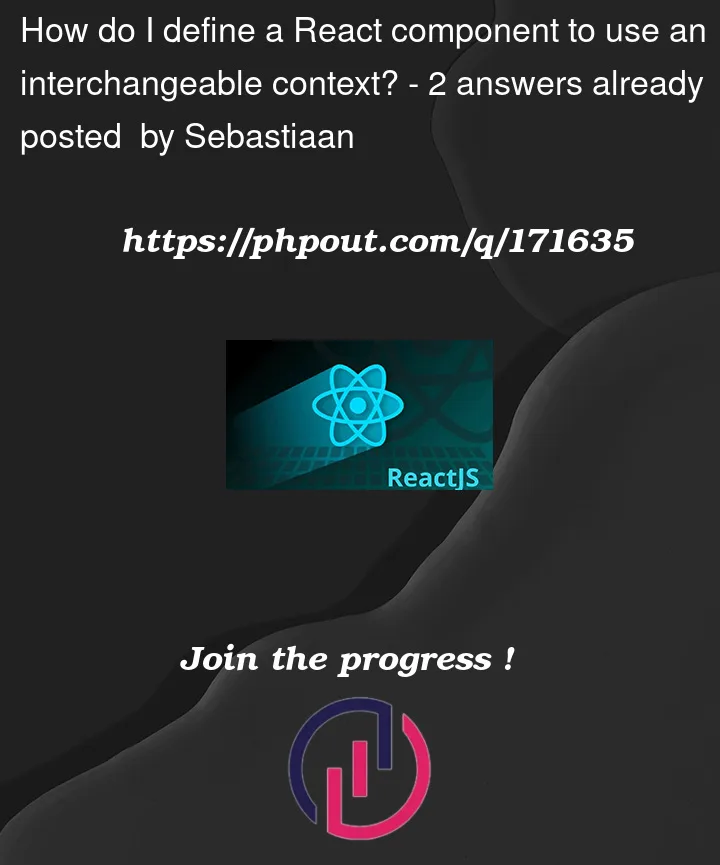I have the following component:
export const ActionCell = () => {
const {
edit,
handleEditComplete,
handleEditCancel,
handleEdit,
handleDelete,
} = useRow();
return (
<StyledActionCell>
<Group>
{edit ? (
<>
<Complete onClick={handleEditComplete} />
<Cancel onClick={handleEditCancel} />
</>
) : (
<>
<Edit onClick={handleEdit} />
<Delete onClick={handleDelete} />
</>
)}
</Group>
</StyledActionCell>
);
};
I want to reuse this component across my application, but with different contexts using the same API. So all functions and variables coming from the hook would be available but the implementation of the logic in the provider is different. How would I go about implementing this?
Currently the useRow references one of the 2 contexts, so it will error when using the context which is not referenced.
Best Regards




2
Answers
I was thinking about it a bit more and could edit the component to inject the function:
If anyone has a better idea I would love to hear it though.
Do you want to use the useRow hook to obtain the values provided by different contexts? If so, I can provide an idea.
First create your context and hook:
import
useRowto use any where under the ContextA or ContextB.And do not pass a hook as component props. read about Rules of Hooks and Calling a React hook conditionally.